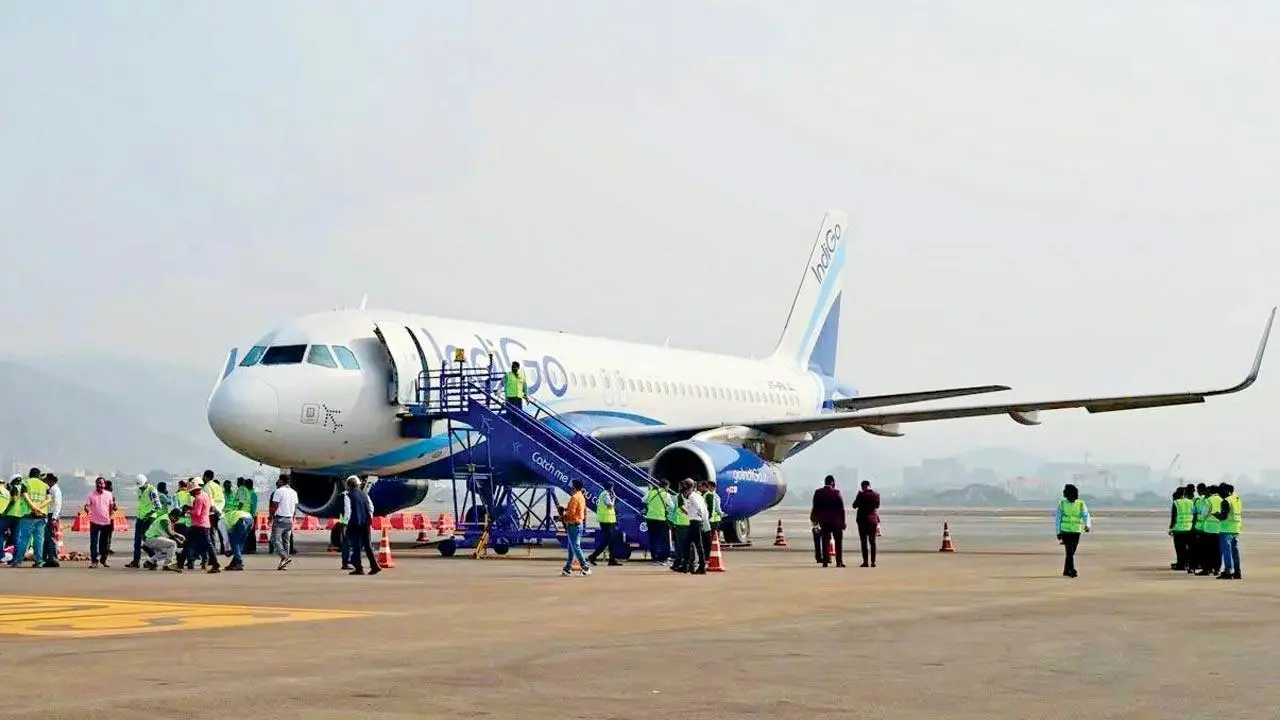Indian Railways approves surveys for elevated rail links from NMIA to Khandeshwar and Targhar, and allocates Rs 70 crore for hydrogen-powered trains on the Matheran Hill Railway under the Hydrogen for Heritage initiative

Navi Mumbai International Airport is set to begin commercial operations in June. File pic/Nimesh Dave
In a significant development in the consolidated budget document released by Indian Railways on Tuesday evening, a survey of short lines to be built entirely on stilts, from the proposed Navi Mumbai International Airport (NMIA) to Khandeshwar on the harbour line and Targhar on the port line has been sanctioned. The document has also sanctioned funds for upgrading the Matheran Hill Railway using hydrogen cell technology.
The document — a copy of which is with mid-day — elucidates a final location survey for the short rail lines from the proposed NMIA to Khandeshwar station at a distance of 3.5 km on the existing CSTM-Panvel harbour line for which R7 lakh has been sanctioned. Another such survey has also been sanctioned for short rail lines from NMIA to Targhar station, at a distance of 1.35 km on Nerul/Belapur-Uran rail line at a cost of Rs 3 lakh.
These two projects will enhance NMIA’s connectivity with Mumbai’s mainstream suburban railway network. NMIA is expected to begin commercial operations in June 2025.
Other works sanctioned
Additionally, a final location survey has been sanctioned for a third line between Panvel and Roha (75 km) at a cost of R1.50 crore, along with a survey to connect Dahanu on the suburban network of WR directly with Nashik, for which R2.05 crore has been sanctioned.
Hydrogen-powered Matheran Railway
The budget document has sanctioned a sum of R70 crore for Central Railway’s hydrogen for heritage infrastructure push. Indian Railways has plans for developing and deploying hydrogen-powered trains, with a focus on heritage and mountainous routes under the ‘Hydrogen for Heritage’ initiative. The first hydrogen-powered train, manufactured by Integral Coach Factory (ICF) in Chennai, is designed to run on the Jind-Sonipat route and is expected to be operational soon. This initiative aims to reduce carbon emissions and promote sustainable transportation, with plans to introduce 35 more hydrogen-powered trains by 2025.
 Subscribe today by clicking the link and stay updated with the latest news!" Click here!
Subscribe today by clicking the link and stay updated with the latest news!" Click here!










